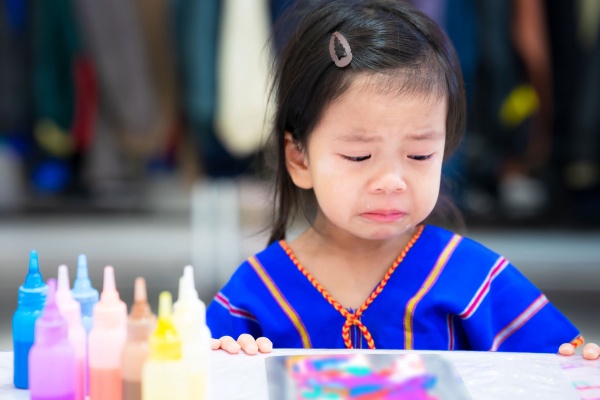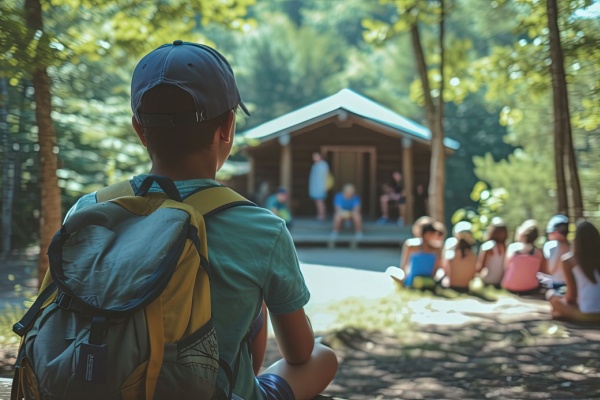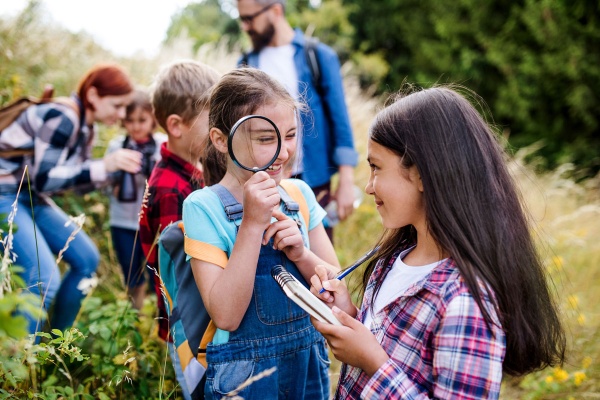

With Project 612, Two Moms are Changing the Way Kids Look at Food Waste
Sometimes it’s the smallest things that inspire someone to change the world around them.
For Gwyn Marini of Edwardsville, Ill., it all started with a bag of chips. Unable to finish all her lunch at school, her daughter asked the lunch monitor if she could take the snack home with her, only to be told no. Leftover food had to be thrown away – it was school policy.
Marini’s frustration only snowballed when she visited her kindergartener over lunch hour, watching endless amounts of uneaten fruit, milk and snacks flow into trash cans, headed straight for the landfills. Marini, whose family sometimes relied on food stamps when she was a child, was understandably upset that so much food was being tossed out when so many families go hungry each day.
Together with her friend, Renee Guttmann, Marini jumped into action, launching Project 612, a grassroots effort to rescue uneaten food from the trash pile and to teach kids the importance of food recovery. At the same time, their efforts are impacting families in need across the Metro East.
“Growing up, I learned food shouldn’t be wasted,” Marini remarked. “My daughter is in a home now where food isn’t an issue, but passing on this value to her, by giving her and her classmates some ownership on what happens to the food they’re given, has really been meaningful.”
How two hours turns into 600 pounds of food
Once a month, parent volunteers from Edwardsville District 7 pop into local elementary schools during “Sack Attack” day, when the lunch features whole fruits, chips and prepackaged desserts. The kids know the drill – items they don’t open and eat because they’re full go right into the Project 612 coolers instead of the trash can.
“Kids are so generous,” said Guttmann over flats of applesauce and boxes of fruit Project 612 have dropped off at Glen-Ed Pantry in Edwardsville. “So we avoid the word ‘donate’ because we only want the food they’re too full to eat. Instead, we talk about saving good food from the trash. The kids get it – they understand the food’s not going to be wasted. There’s someone that can use it.”
Marini nodded in agreement. “That’s the whole point. We want to foster the atmosphere that food is not garbage and that kids grow up valuing the importance of food so they make smarter choices.”
While the focus is on food recovery, the overall impact on hungry families is substantial. Each month, the Glen-Ed Pantry is bursting with up to 700 pounds of food from Project 612 that would otherwise go in the trash, helping serve the thousands of families who rely on the pantry every year.
The result truly encompasses Marini’s inspiration for the project. Project 612 is named for John 6:12, when Jesus fed 5,000 followers: “And when everyone was full, He said to His disciples, ‘Gather the pieces that are left over so that nothing will be wasted.’”
Addressing a serious need in the U.S.
The need for food collection is critical to the health of families in the region and that of our nation overall. According to the Brookings Institute, one in five households faces food insecurity, or difficulty providing enough food for all family members. In fact, right now, 15 million kids are living in food-insecure homes.
On the flip side, the amount of food Americans waste is staggering. Forty percent of food in the U.S. goes uneaten, reported the National Resources Defense Council, and Americans throw out $165 million worth of food every year. Therefore, anything we can do to bridge the gap not only protects a family’s well-being, but allows the U.S. to be more environmentally-conscious and sustainable.
While Project 612 seems like one obvious solution to the problem, getting to this point took a lot of legwork, new legislation and some divine intervention.
Prior to 2011, Marini and Guttmann worked to find a way to collect food at local schools, but administrators were worried about potential liabilities if food they provided wasn’t stored properly. While the District applauded their efforts, the doors were closed.
Just one year later, encouraged by a mom’s group led by Debbie Gaughan at St. John’s United Methodist Church, Marini began investigating the cause again with state and county health departments. Within that one-year time frame, the Good Samaritan Food Donation Act, which defends organizations from liability when donating to nonprofits, extended protection to schools nationwide.
According to Marini, the legal ramifications had never been clear and schools had every right to be concerned. With the updated Act, the law was finally clarified, taking any liability off the schools. At the same time, both the USDA and EPA began encouraging organizations to divert quality food from the landfills to local food pantries and nonprofits.
“They say God says yes, no or wait, but that wait felt like a no for so long,” said Guttmann. “The change in the law gave not only us – but programs across the country - the green light to make a difference. He didn’t just tell us to wait – He was telling all of us to wait.”
Since its launch, Project 612 has collected more than 23,000 pounds of food. The monthly drive collects so much milk that pantries from across the Metro East depend on the Glen-Ed stash to supply the families they serve.
Remarked Judy Moody, director of the Glen-Ed Pantry, “Project 612 is an example of this generation deciding to take charge and make something happen. To be able to share our gifts with pantries in underserved communities like Washington Park means so much. Just handing them the milk and juice they need does a heart good!”
But even more important, other parents and school districts have reached out to Project 612 to address the need in their own schools.
“Up to this point, we’ve been focused on ‘let’s make this happen in our district,’” said Guttmann. “But actually encouraging other people through our experience is to me, a lasting change going forward. Kids are no longer going to ask why someone’s at school collecting food – they’re going to start questioning if they see anyone throw perfectly good food in the trash. The movement’s going mainstream, and it’s really exciting!”
To learn more about Project 612 or discover how to institute a program in your own school district, visit them on Facebook at www.facebook.com/Project612 or email [email protected].

Metro East mom Nicole Plegge has written for STL Parent for more than 12 years. Besides working as a freelance writer & public relations specialist, and raising two daughters and a husband, Nicole's greatest achievements are finding her misplaced car keys each day and managing to leave the house in a stain-free shirt. Her biggest regret is never being accepted to the Eastland School for Girls. Follow Nicole on Twitter @STLWriterinIL



















